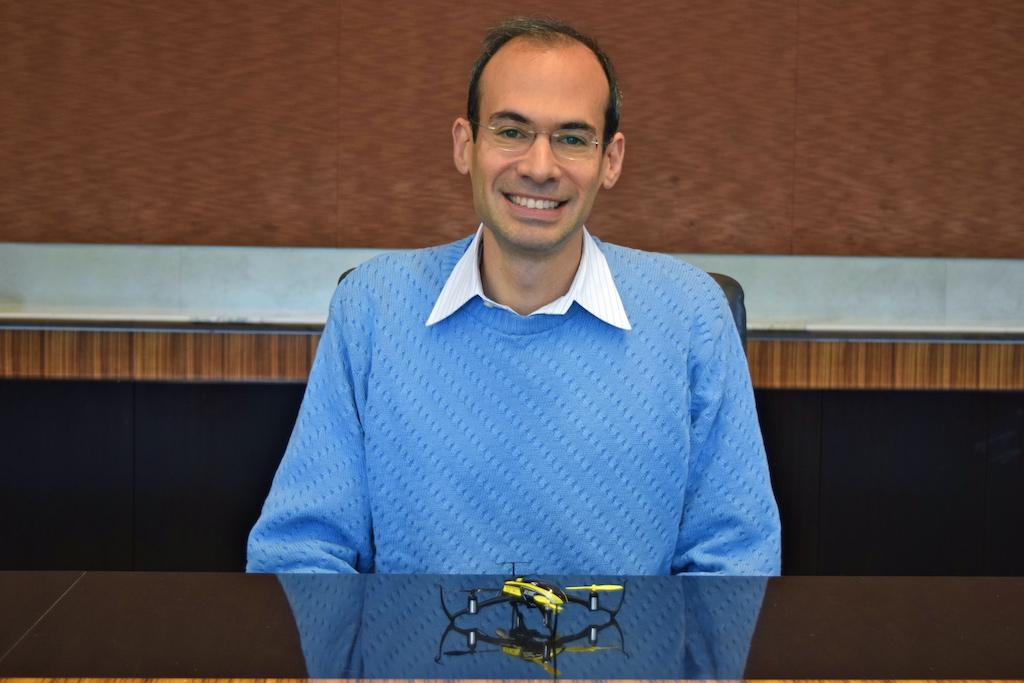
Drone industry pioneer Brendan Schulman has left dronemaker DJI for a position with “legged” robot manufacturer Boston Dynamics, citing the politicization of drones as playing a role in his decision.
Schulman announced his departure as vice president of policy and legal affairs for China-based DJI in a Sept. 10 email to close contacts that was obtained by the news website DroneDJ. He said his main reason for leaving the drone manufacturer after six years “is a sense of having reached the end of a mission,” having participated in the formulation of FAA rules for drone Remote Identification, flights over people and at night, and aeronautical knowledge testing of recreational flyers.
“I would be remiss if I did not mention the disappointment I feel at how politicized the industry has become in the past few years,” added Schulman. “This has played a significant role in my decision to leave and is something that remains a growing challenge for the industry and a genuine threat to innovation. I hope that those of you remaining in the industry find a way to solve these challenges with fact-driven, risk-based policies and standards. Organizations and individuals who have something to lose in this geopolitical game, in which the drone industry is being treated as a pawn, need to speak up and be heard.”
Schulman joins Boston Dynamics, a Waltham, Massachusetts-based manufacturer of ground-based robotic machines including “Spot,” a robotic dog, as vice president of policy and government relations.
Then a New York City-based attorney and model aircraft enthusiast, Schulman rose to drone-industry prominence in 2013-14 when he represented Swiss national Raphael Pirker against the FAA in Huerta v. Pirker, a seminal case adjudicated by an NTSB administrative law judge. The FAA had levied a $10,000 fine against Pirker—the agency’s first such civil penalty—for allegedly flying a Ritewing Zephyr in a reckless manner over the University of Virginia campus in Charlottesville, Virginia, in October 2011.
The case hinged on whether a small unmanned aircraft system met the legal definition of an “aircraft.” Schulman filed a motion to dismiss the FAA’s enforcement action against Pirker, arguing that it was “an improper attempt…to impose an unprecedented civil penalty upon the operator of a five-pound radio-controlled model airplane constructed of Styrofoam.” The agency sought to fine Pirker under its Part 91 regulation “notwithstanding the fact that it has never promulgated any enforceable regulation concerning the operation of model airplanes, and on the contrary has for decades expressly avoided such regulation and enforcement.”
NTSB Administrative Law Judge Patrick Geraghty ruled in Pirker’s favor and dismissed the FAA’s complaint against him. In November 2014, however, the NTSB board reversed Geraghty’s ruling, siding with the FAA that Pirker’s Ritewing Zephyr was indeed an aircraft subject to regulation against unsafe operation. Pirker and the FAA eventually settled the charges; Pirker agreed to pay $1,100 without admitting to wrongdoing.
DJI, the world’s leading manufacturer of small drones, hired Schulman in 2015. He represented DJI as one of the original members of the senior executive-level Drone Advisory Committee, established by the FAA in 2016, and also served on three of the agency’s Unmanned Aircraft Systems Aviation Rulemaking Committees.
Schulman also defended DJI against U.S. government restrictions imposed on drones based on country of origin, and accusations that its drones surreptitiously send data back to China.
“Drone pilots around the world have benefited from Brendan Schulman’s tireless efforts over the past six years to ensure that laws and regulations have opened the skies to drones,” the manufacturer said in a statement provided to Business & Commercial Aviation.
“He has led DJI’s efforts to show that drones are a safe and secure addition to the skies, and that the world is better off when people can fly drones for fun, for work, and for public safety. DJI’s global policy team will continue this important work into the future, and we wish Brendan well in his future endeavors.”





